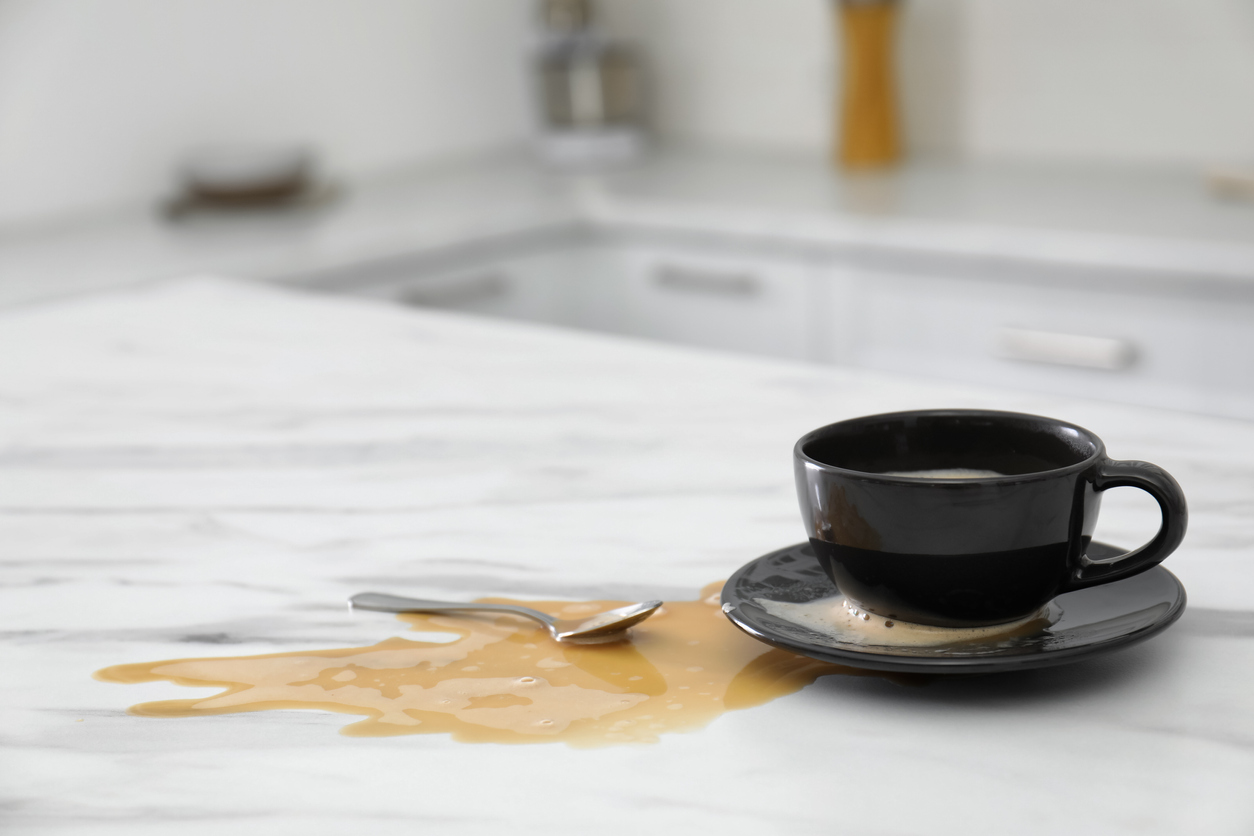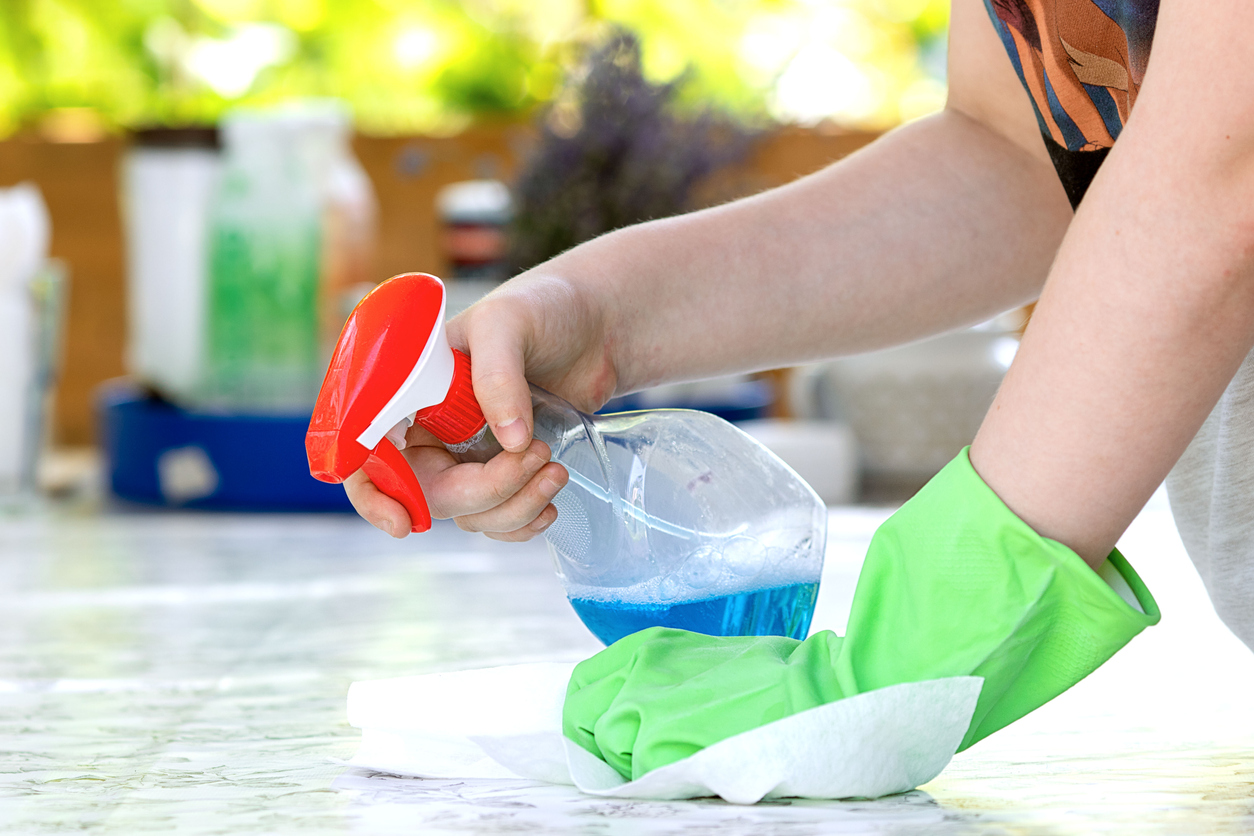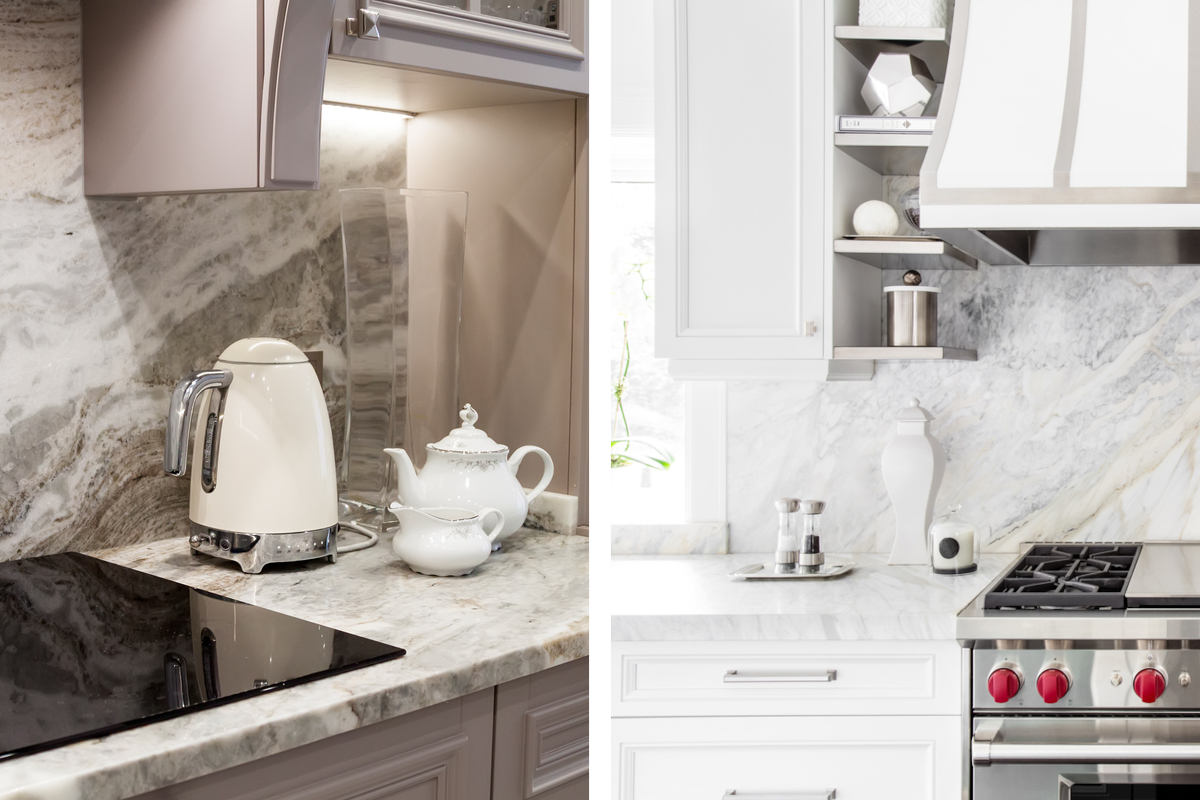We may earn revenue from the products available on this page and participate in affiliate programs. Learn More ›
When it comes to choosing a countertop for a kitchen or bathroom renovation, quartz and marble are among the most popular materials. Both options are available in a variety of colors and provide the appearance of natural stone.
To help you make the best choice for your home, we’ve broken down what you need to know about the differences between marble and quartz, as well as each material’s advantages and disadvantages.
Marble is a natural stone, while quartz is an engineered stone.
One fundamental way to compare quartz versus marble countertops is to look at how each material is sourced.
Marble is a type of natural stone—technically speaking, it’s a metamorphic rock. It’s found all over the world and has a long history of use in both art and construction. Marble naturally comes in a variety of colors, including white, gray, and pink. What sets marble apart is its distinct veining, which comes in an array of colors and patterns. This allows each slab of marble to be completely unique and offer a luxurious aesthetic.
Quartz countertops are a type of engineered stone made by combining crushed-up stone particles with a binding agent like polymer resin. The final product typically contains between 90 and 94 percent stone and 6 to 10 percent resin. Pigments are added to create different colors, making the possibilities nearly endless in terms of the final product’s appearance. The material is then shaped into slabs meant to replicate the appearance of natural stone.
Due to its construction, each quartz slab is more uniform, but some higher-end options are crafted with veining to mimic the look of marble. Unlike marble, quartz is mass-produced, so it lacks the one-of-a-kind look of its natural counterpart. The final installation of quartz countertops usually includes visible seams, but it is possible to get larger slabs of quartz to avoid this.
Related: The Best Countertop Material for Every Type of Kitchen
Marble is porous, so it’s more susceptible to stains and harboring germs than quartz.

Another major difference between marble and quartz is the hardness of each material. When comparing marble with quartz on the Mohs scale of mineral hardness (in which 1 is the softest and 10 is the hardest), marble is rated a 3 and quartz is rated a 7. In contrast to more durable quartz, marble is considerably softer and is more prone to scratches.
Marble is also more porous and prone to staining. If you spill a glass of red wine on a marble countertop, it may stain if it’s not cleaned up immediately. Quartz isn’t as porous, so it’s more resistant to bacteria, mold, and staining, and it doesn’t need to be sealed.
One major benefit of marble, however, is that it can be polished repeatedly to remove any stains or scratches from its surface. Since it’s harder, quartz is trickier to polish.
Quartz countertops are more durable than marble countertops.
Marble may be beautiful, but it’s not particularly durable. Acidic liquids like lemon juice, vinegar, and tomato sauce can cause the polished surface of marble to wear away, leaving matte white marks. This is known as etching, and it can be repaired through polishing. Marble is also susceptible to stunning, an effect that occurs after hard impacts. Dropping something heavy, such as a Dutch oven, onto a marble countertop may leave behind a white mark.
Despite its downsides, one advantage marble has over quartz is greater heat resistance. Quartz generally resists temperatures up to 400 degrees Fahrenheit, but it may be burned or scorched if it comes into contact with a hot pan. Carrara marble, on the other hand, has a higher heat threshold of 480 degrees, but heat resistance may vary between types of marble.
Overall, quartz is more durable than even granite and resistant to chipping, etching, cracks, and stains.
Quartz countertops require less maintenance than marble countertops.

Perhaps the biggest downside of marble countertops is that they should be resealed every 6 months, and marble must be cleaned with pH-neutral cleaning products in order to prevent etching. Unlike marble, a quartz countertop is quite low-maintenance and doesn’t need to be sealed. It can be cleaned with most standard household cleaners.
In terms of minor maintenance—like filling in dings and small chips—both quartz and marble can be treated using an epoxy or resin repair kit in a color matching the countertop. If marble cracks, however, hiring a professional for repairs is typically required. So in terms of maintenance, quartz countertops have the advantage.
Marble countertops generally cost more than quartz.
While exact costs vary and are based on numerous factors (including your location, the type of marble or quartz, and the layout of your kitchen or bathroom), there’s a noticeable difference when it comes to comparing installed marble versus quartz countertops.
The average price for marble countertops—including installation—runs about $75 to $250 per square foot. Quartz countertops typically cost $50 to $200 per square foot installed, and the average price of installing quartz kitchen countertops in the U.S. ranges between $3,000 and $7,500, according to HomeAdvisor. Meanwhile, marble countertop materials and installation range more widely based on the type of marble chosen.
Related: 10 Things You Should Take Off Your Kitchen Countertops to Declutter
Both quartz and marble countertops can improve a home’s resale value.

Regardless of which material you choose, both marble and quartz countertops have the potential to bring added value to a home if you choose to sell. Specific ROI depends on many factors, the simplest of which being whether or not homebuyers in your area desire quartz or marble countertops. You can get a sense by checking out local real estate listings to see if homes comparable to yours feature either material and what they’re priced at.
Comparing quartz and marble countertops reveals both have distinct advantages and disadvantages, and there’s no clear “best” choice. The option that’s right for you depends on your lifestyle, budget, and aesthetic preferences.


